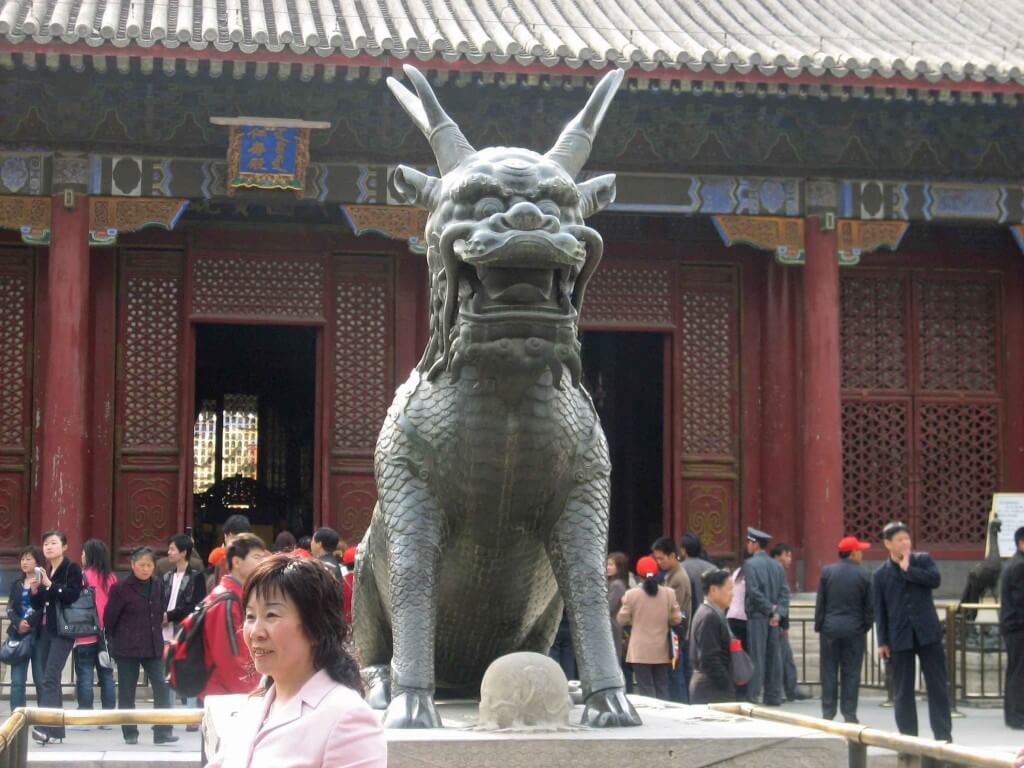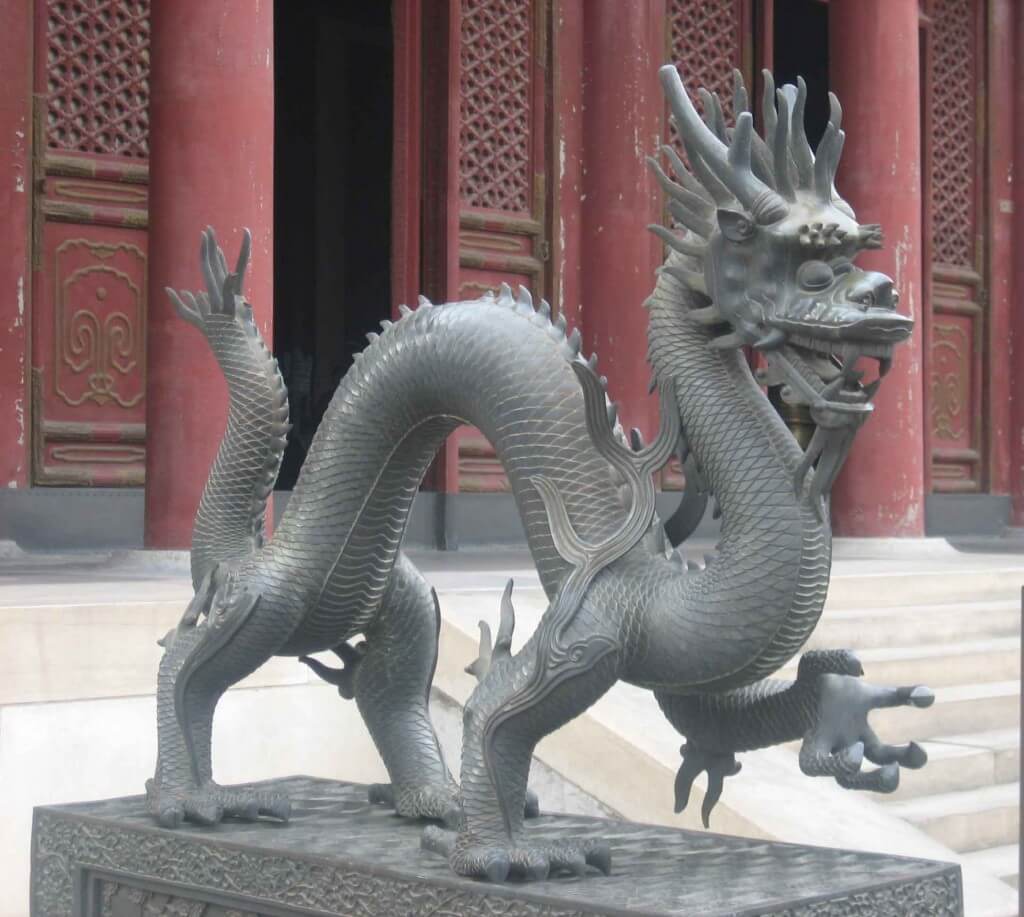The Hall of Benevolence and Longevity, Renshoudian, at the Summer Palace
Visit the Hall of Benevolence and Longevity where the Empress Cixi arranged her affairs of state and received officials, as part of Chinese culture and tradition passed down from the famous Chinese Ming Emperors. The hall has been left as it was during her reign, and has a throne furnished with nine dragons, delicate peacock-feather fans and an elaborate red sandalwood screen. In front of the Hall there are bronze statues of a dragon and phoenix, which are incense burners for use on special occasions.

In ancient Chinese mythology this strange beast known as ‘Kylin’ stands guard outside the Hall of Benevolence and Longevity at the Summer-Palace
In the courtyard stands a strange beast, known in ancient Chinese mythology as ‘Kylin’ (Qilin). This ancient Chinese beast of mythology was cast in bronze during the reign of one of the famous Chinese Ming Emperors known as Emperor ‘Qianlong’. The legendary animal ‘Kylin’ is believed to have the power to punish evil and repel the wicked. This peculiar beast of ancient Chinese mythology has the head of a dragon, antlers of a deer, tail of a lion, hooves of an ox, and is covered in scales (sounds a bit like a witches brew to me).

Places to visit on a small group tour in Beijing, China, see the Bronze-Dragon outside the Hall of Benevolence and Longevity at the Summer Palace.
With the Summer Palace on your list of places to visit on a small group tour, make sure you seek out this weird looking creature of ancient Chinese mythology known as ‘Kylin’. Nearby you will see a symbolic bronze Dragon as well as another amazing creature of ancient Chinese mythology known as the ‘ Pheonix’.
For more on Chinese history relating to the Summer Palace read a fascinating and horrific account of “The Opium Wars”, (by W.Travis Hanes lll and Frank Sanello)
one of the most important, bizarre, and tragic clashes between East and West. The two wars of 1839-1842 and 1856-1860 with the British and later the French Empires pitted against the Qing empire. The sorry, sordid details of the sacking and burning of the original Summer Palace, which was not only a repository of priceless antiquities, housing libraries with original and irreplaceable manuscripts and priceless works of art, but a magnificent architectural collection of pagodas, palaces and pavilions. I have just finished reading this book and it was certainly an eye opener as to the reason behind the Opium Wars.
Speak Your Mind